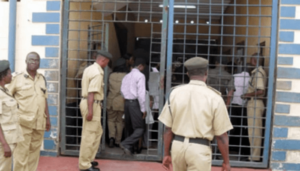
The state of imprisonment in Nigeria has been a topic of significant concern for years, drawing attention from human rights organizations, policymakers, and the general public. Despite ongoing reforms, systemic issues continue to plague the country’s correctional system, affecting inmates’ welfare and the effectiveness of rehabilitation programs. This article explores the prevailing trends and conditions of imprisonment in Nigeria, shedding light on the challenges and potential solutions.
Overcrowding in Nigerian Prisons
One of the most glaring issues in Nigerian prisons is overcrowding. With a population far exceeding the official capacity of correctional facilities, many inmates are forced to live in inhumane and unsanitary conditions. For example, as of 2023, the Nigerian Correctional Service reported that the prison population was over 75,000, with more than 70% of inmates awaiting trial.
This overpopulation is often attributed to systemic delays in the judicial process, inadequate legal representation for indigent defendants, and outdated sentencing laws that emphasize incarceration over alternative punishments like community service or fines.
Prevalence of Pre-Trial Detainees
A significant portion of Nigeria’s prison population consists of pre-trial detainees, many of whom have been awaiting trial for years. This prolonged detention violates the constitutional right to a fair and speedy trial, further exacerbating overcrowding and worsening the conditions for convicted inmates.
Efforts to reduce pre-trial detention through case reviews and legal aid have been made, but progress has been slow. The lack of adequate resources for the judiciary and legal professionals often hinders the timely resolution of cases.
Living Conditions in Prisons
The living conditions in many Nigerian prisons are appalling, with inmates often lacking access to basic necessities such as clean water, nutritious food, and adequate medical care. Cells designed to hold a few dozen inmates are overcrowded, leaving little room for movement or privacy.
Poor hygiene and inadequate healthcare contribute to the spread of diseases such as tuberculosis, scabies, and other communicable illnesses. Mental health support is virtually non-existent, despite the high prevalence of psychological distress among inmates.
Rehabilitation and Reintegration
Rehabilitation programs in Nigerian prisons remain underfunded and poorly implemented. Vocational training, education, and psychological counseling—which are critical for preparing inmates for reintegration into society—are often unavailable or ineffective.
As a result, recidivism rates remain high, with many released inmates returning to crime due to a lack of skills, employment opportunities, and societal stigma.
Gender-Specific Challenges
Female inmates face unique challenges within Nigeria’s prison system. Many facilities lack adequate provisions for pregnant women, nursing mothers, and their children. Reports indicate that some female inmates are forced to give birth in unsanitary conditions, further endangering their health and that of their babies.
Additionally, there are concerns about gender-based violence and the lack of gender-sensitive rehabilitation programs tailored to women’s needs.
Efforts at Reform
In recent years, there have been some efforts to reform Nigeria’s prison system. The 2019 renaming of the Nigerian Prisons Service to the Nigerian Correctional Service signaled a shift in focus toward rehabilitation and reintegration. However, these changes have yet to yield significant results due to funding limitations and inadequate implementation of new policies.
Several non-governmental organizations (NGOs) and advocacy groups have also stepped in, offering legal aid, education, and healthcare services to inmates. These efforts, though commendable, are not enough to address the systemic issues within the system.
Recommendations for Improvement
To address the challenges of imprisonment in Nigeria, a multi-faceted approach is needed:
Judicial Reforms: Speeding up the trial process through digital case management systems and alternative dispute resolution mechanisms.
Non-Custodial Sentencing: Expanding the use of fines, probation, and community service for minor offenses to reduce prison overcrowding.
Improved Facilities: Increasing funding for the construction and maintenance of prison facilities to improve living conditions.
Rehabilitation Programs: Investing in education, vocational training, and mental health services for inmates.
Human Rights Monitoring: Strengthening oversight mechanisms to ensure that inmates’ rights are respected.
Conclusion
The trends and conditions of imprisonment in Nigeria reflect deep systemic challenges that require urgent attention. While progress has been made in some areas, there is still much to be done to transform Nigeria’s correctional system into one that prioritizes rehabilitation, respects human dignity, and upholds justice.
Addressing these issues is not just a matter of policy but a moral imperative for a society committed to fairness and human rights.
